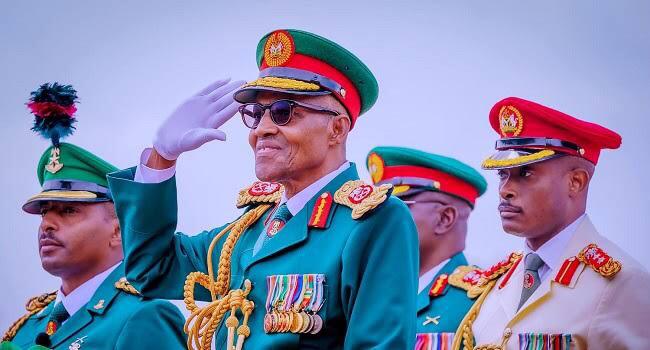The passing of former President Muhammadu Buhari marks the departure of a significant figure in Nigeria’s political landscape, particularly concerning his influence on public service reform. His legacy, spanning both military and democratic leadership, is characterized by a deep commitment to national service, integrity, and discipline. Buhari’s two presidencies, separated by decades, offered him unique perspectives on governance and the necessary changes within the Nigerian Civil Service. His contributions are remembered and lauded by the Head of the Civil Service of the Federation, Didi Walson-Jack, who acknowledges the transformational impact of his leadership on the country’s administrative machinery.
Buhari’s commitment to public service reform was particularly evident in his implementation of the Federal Civil Service Strategy and Implementation Plan (FCSSIP) across two iterations, 2017-2020 and 2021-2025. These strategic plans aimed to modernize and enhance the efficiency of the Civil Service. The FCSSIP initiatives focused on key areas such as improving transparency within government operations, strengthening measures against corruption, expanding social investment programs to benefit a wider population, and accelerating the renewal of critical infrastructure across Nigeria. These focused efforts were designed to not only improve the functionality of the civil service but also to bolster public trust and confidence in the government.
The impact of the FCSSIP initiatives resonated across various aspects of the Civil Service. A notable achievement was the enhanced transparency in government operations, fostering accountability and reducing opportunities for corruption. The reinforced anti-corruption framework signaled a stronger stance against unethical practices and emphasized the importance of ethical conduct within the public sector. Simultaneously, expanding social investment programs demonstrated a commitment to social welfare and aimed to address critical needs within the population. The acceleration of infrastructure renewal projects, another key component of the FCSSIP, targeted improvements in crucial sectors such as transportation, energy, and communication, contributing to national development and economic growth.
Beyond the specific initiatives within the FCSSIP framework, Buhari’s broader influence on the Civil Service is recognized for fostering a culture of efficiency, accountability, and the adoption of digital technologies in government operations. His emphasis on these principles laid the groundwork for ongoing administrative transformations within the public sector. By promoting a merit-based system, Buhari aimed to ensure that appointments and promotions within the Civil Service were based on qualifications and performance rather than patronage or other non-meritocratic factors. This approach was crucial for building a more professional and effective civil service. The drive towards digitization streamlined processes, improved access to information, and enhanced the overall efficiency of government operations.
Buhari’s legacy within the Nigerian Civil Service is defined by his unwavering belief in merit, order, and the rule of law. These principles formed the foundation upon which current reforms are built and continue to guide the ongoing transformation of the public sector. His leadership instilled a renewed focus on ethical conduct, professionalism, and a commitment to serving the citizens of Nigeria. The values he championed are viewed as essential for building a more transparent, disciplined, and citizen-focused civil service. His focus on these core principles serves as a model for future leaders and a testament to his dedication to improving governance in Nigeria.
The current administration and the Nigerian Civil Service recognize and honor the enduring impact of Buhari’s principles and ideals on their collective journey towards a more effective and responsive public sector. His emphasis on transparency, discipline, and citizen-centric service remains a guiding light for ongoing reforms. The loss of such a prominent figure is mourned across the nation, but his contribution to public service reform and the strengthening of Nigeria’s administrative framework will continue to shape the future of the Civil Service and the country as a whole. His legacy serves as a reminder of the importance of strong leadership, ethical governance, and a commitment to the betterment of the nation.


